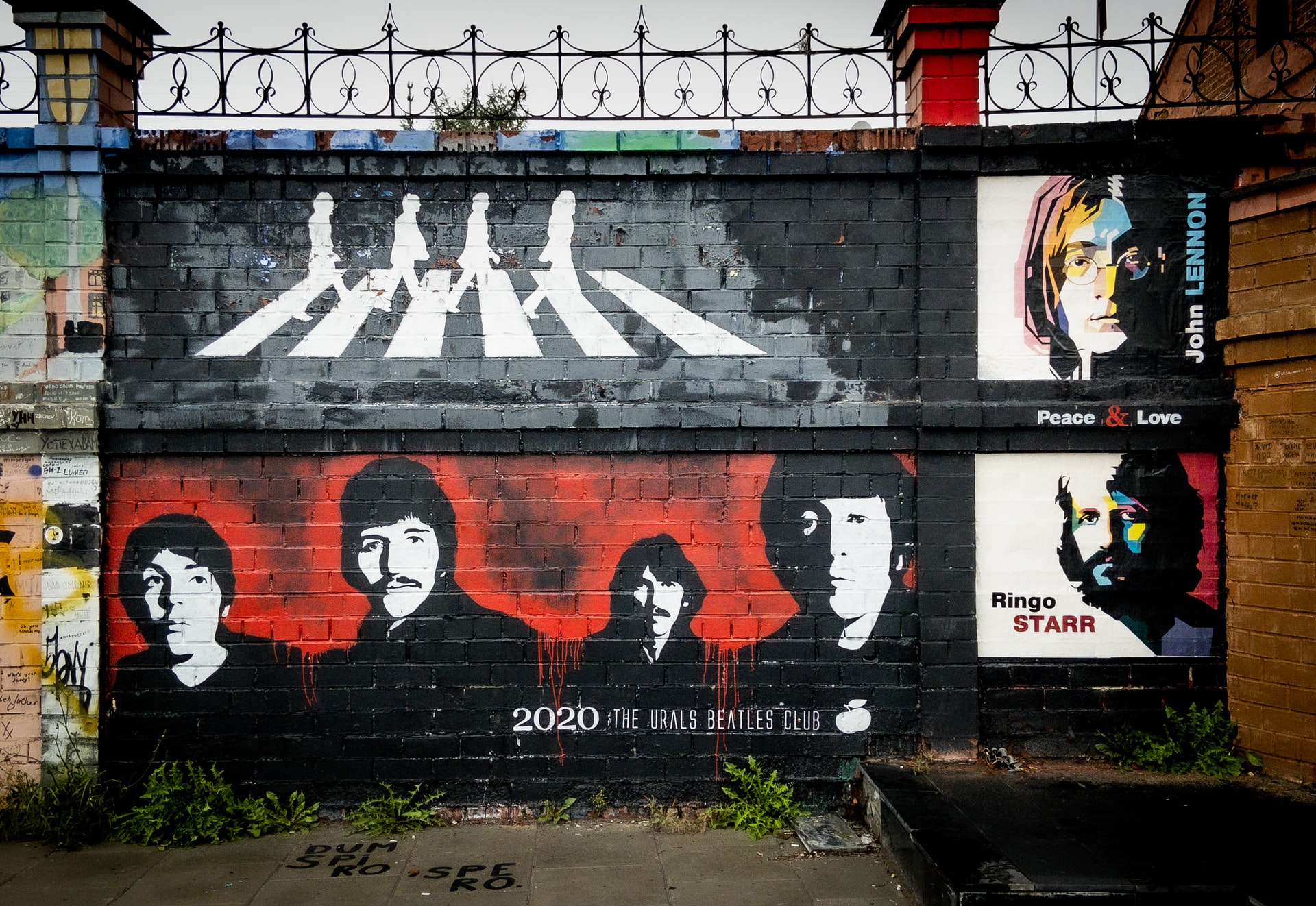Entertainment
Now and Then: How composition choices made John Lennon’s music memo into a Beatles song

Major-key songs dominate the Beatles’ catalogue, comprising roughly 81 per cent of their recordings. (File Photo: Fedor/Unsplash)
The Beatles’ “last song ever,” released 61 years after their first single, was bound to be significant.
But how did John Lennon’s lo-fi, 40-something-year-old cassette recording of Now and Then — deemed “fucking rubbish” by George Harrison during the failed 1995 attempt to revive the song — become an instant No. 1 chart hit and worthy addition to the Beatles’ catalogue in 2023?
Beyond the AI-assisted salvage of Lennon’s voice from the noisy cassette, it is worth examining Lennon’s raw materials, and the strategies that made the unfinished late-1970s musical sketch a Beatles’ song.
Personal music memo
Had Harrison told Lennon himself that the song was rubbish, Lennon might have responded, “Well I’m not finished with it yet, am I mate?”
Lennon’s original “demo tape” was not made for formal presentation (to a music publisher, for instance).
It was a personal memorandum to capture basic song ideas — something musicians do all the time. If they stopped there, Yesterday would be Scrambled Eggs, and the Rolling Stones’ Satisfaction would be one minute of Keith Richards’s signature riff and 45 minutes of snoring.
Unorthodox compositional form
The surviving two Beatles decided to finish the song in 2023, bringing in producer Giles Martin, son of George, the celebrated fifth Beatle, and incorporating Harrison’s guitar parts from 1995. The lyric sheet from these sessions, marked up by producer Jeff Lynne, suggest Lennon hadn’t titled his song-in-progress.
What likely bothered Harrison most about Lennon’s recording was its unorthodox application of verse-chorus song form. In verse-chorus form, the chorus typically provides the main “hook.”
Verse-chorus songs occassionally feature a “pre-chorus,” which follows the verse to set up the chorus.
Another section common in verse-chorus songs is the bridge, usually a contrasting musical idea introduced only after the verse and chorus.
Delayed chorus
On Lennon’s recording (heard in this musician’s video), Lennon introduced a bridge-like section where a pre-chorus would normally go. But rather than propelling the song toward the chorus, it meanders awkwardly, delaying and undermining the arrival of the chorus hook.
John most certainly would have revised this. In his absence, Martin and the remaining Beatles opted for the only solution available: cutting Lennon’s misplaced, unfinished pre-chorus/bridge and composing a new bridge.
Most Beatles’ songs in major keys
Now and Then plays on the contrast between major and minor tonalities. Major keys are commonly described as “bright” or “happy,” while minor keys are often described as “dark” or “sad.”
Major-key songs dominate the Beatles’ catalogue, comprising roughly 81 per cent of their recordings. Only four per cent remain entirely in minor keys, including Come Together and I Want You.
Now and Then is among the remaining 15 per cent of Beatles’ songs that move between major-key and minor-key sections, alongside We Can Work It Out or Girl.
Lennon’s verse for Now and Then is among the most minor-laden sections of any Beatles song, opening with alternating minor chords. Mired in minor darkness, Lennon engages a harmonic sleight of hand reminiscent of Beethoven or Schubert, shifting abruptly to a major-chord refuge (on the sixth scale degree). But this ray of brightness is illusory; listeners feel the inevitable pull back to minor-key darkness.
The sound of nostalgia?
As musicologist Susan McClary explains,
this particular compositional strategy evokes “Never Never land.”: it “variously radiates hope, escape or nostalgia for a lost arcadia … but it takes only a half-step drop in the bass to return the piece to harsh, unmerciful reality.”
Lennon’s melody and his descending opening phrases strongly imply a melodic resolution to the home pitch (A). Following the aforementioned glimmer of major-chord brightness (on “make it through”) and its slide down to the E dominant chord (“it’s all because of …”), Lennon pauses dramatically.
Finally, Lennon intones the last word (“you”) over the inevitable return to A minor. But rather than the expected melodic resolution down to the home pitch, Lennon clings hauntingly to a dissonant note (B) one step above, before ending with “you-ooh-ooh-ooh” — a trademark vocal ornament.
Seeking relief in the chorus
Pop convention would grant a major-key payoff at the chorus, but Lennon’s pre-chorus/bridge thwarts any such gratification. So the 2023 Beatles cut it, opting for a conventional move directly to the major-key chorus.
The reward is bittersweet. Rather than moving upward to the stable, conventional major key alternative (the so-called relative major), the chorus falls a whole step to G major. Lennon’s melody seeks to ascend, but the melodic leap (on “I miss you”) is tinged by a passing minor chord (a common strategy to evoke longing, as in the opening melodic leap of the classic Over the Rainbow.)
This is not the magical moment we have so often experienced with the Beatles, Beatle-esque strings notwithsanding. Rather than transcendence, fond remembrance settles into resigned acceptance.
Admirable guitar tribute, but not Harrison
The transcendent gesture comes with the newly composed instrumental bridge, which does move up to the satisfying relative major. McCartney’s soaring slide guitar is a beautiful invocation of Harrison’s melodic sense and phrasing. But it is unmistakably not the Beatles’ late, inimitable guitarist. It is hard not to hear this loss in McCartney’s tribute.
Equally painful is the impossibility of Lennon and his bandmates working his pre-chorus/bridge section into the song. It contains some of the most expressive moments on Lennon’s recording.
Their last song offers a real experience of a glorious past, but makes painfully audible what has been lost.![]()
![]()
Steven Baur, Associate professor of musicology, Dalhousie University
This article is republished from The Conversation under a Creative Commons license. Read the original article.





















